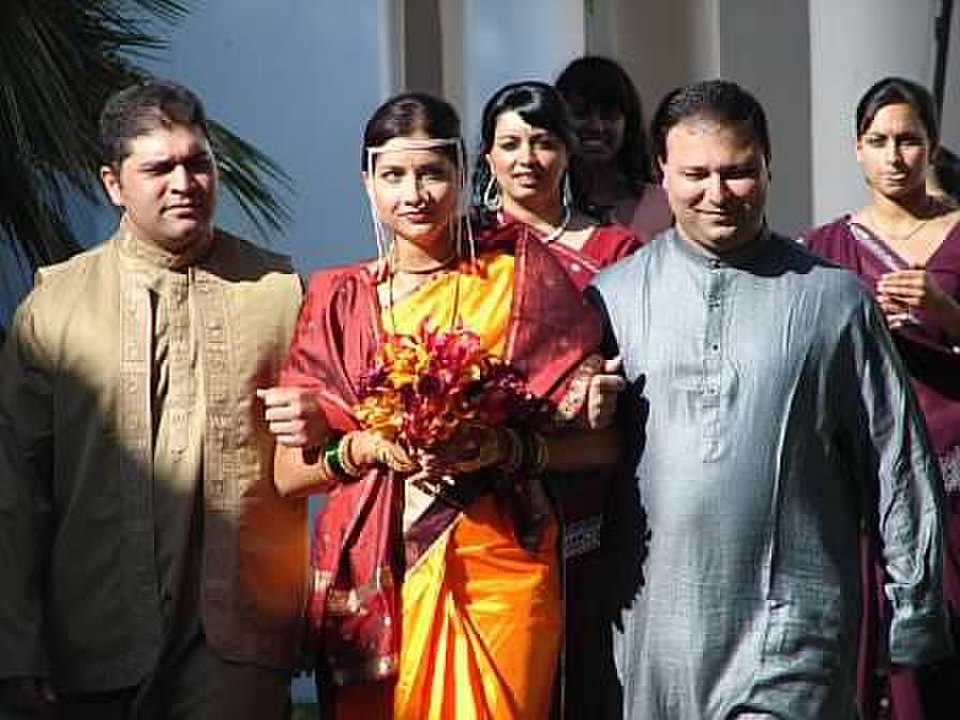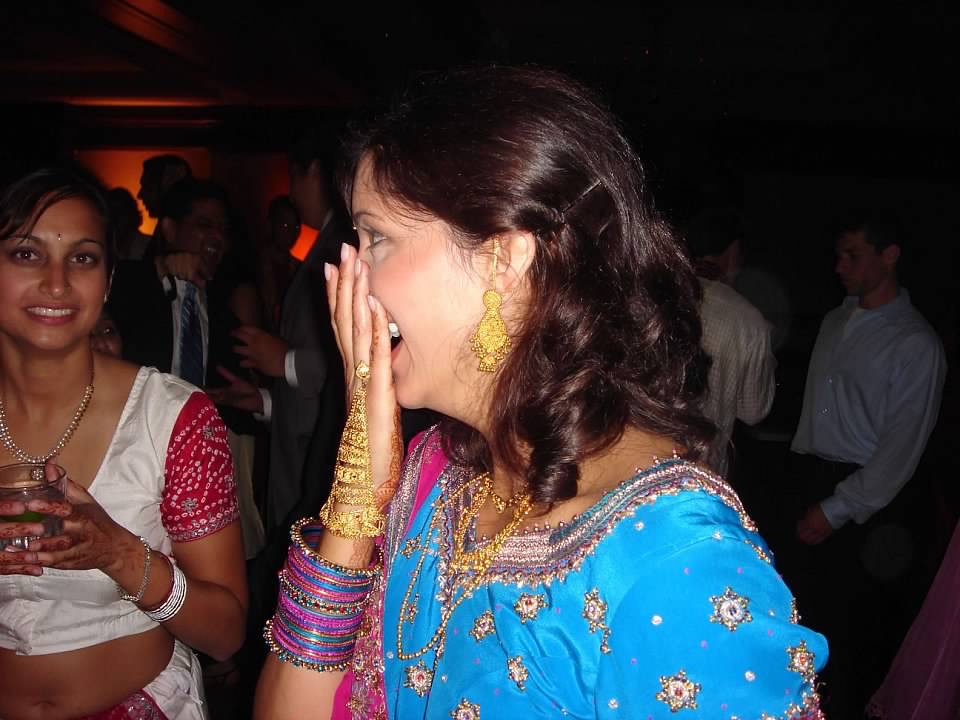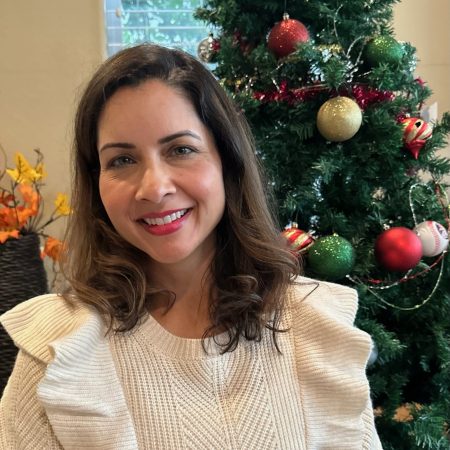How the long road can the be the destined road.
I hope you have read my Elle piece,“The Other Side Of Indian Matchmaking: The Indian Divorce,” about my Indian-American divorce. I am humbled by its publication. The story follows the long, painful, internal struggle I faced for many years about leaving my marriage because of the cultural and personal ramifications. Writing about the loss of my marriage was painful, as was the path to publishing it. Ironically, in trying to get this piece to you, I also experienced loss and resurrection, exactly as I detailed in my writing. My essay was almost was never published.

The long, journaled road
I began writing the piece even while my story was still unfolding. About 6 years ago, I had a feeling that everything that was happening in my life needed to be written down. I have always journaled, but I took more notes this time. After divorce discussions were closing, I began with pulling together entries from my journals, notes to myself, text and emails.
It was difficult to balance what parts of my story to share. There was both a lot of material and many intimate details of a family. I wanted to tell my truth without character assassination. The right balance would avoid my children one day saying to me: “I wish you didn’t write that.” I wanted enough detail to make picture clear without undermining my desire to have a healthy relationship with my parents and my ex. That’s how I got to the lens of storytelling through my relationship with my father. When I found the right voice and angle, I shared my first drafts with a writing partner. The writing, editing and slashing of paragraphs was a therapeutic, painful and liberating.
Once the piece was strong enough, I then workshopped it with a larger group. Getting feedback and revisions on intimate details of my life felt wounding every time. Overall, the feedback I received was positive and encouraging. “I could see this piece getting published in The New York Times’ Modern Love column,”one workshop member commented. That’s what I secretly wanted, too.
I had pinned my hopes on my piece running in Modern Love. The goal felt lofty, but I told myself that I could do lofty things. As the 13th and 15th and 19th versions of the piece were edited, the positive comments further inflated my vision. And my head, if I’m honest.
This can happen.
There was much riding on the publication of the 1500-word essay. First, the publication would be a crucial step in announcing my divorce to the world. Because my parents – and I – were still keeping it a secret, it would be the fastest way to get the news out. I could finally live freely. Modern Love’s broad readership would amplify this piece to reach other women who would feel comforted by my story. It was a story I wish I could have read at the time of my greatest despair. Lastly, having something published in the Times would give me the confidence to pursue writing a book. No pressure, right?
Destiny or delusion?
Because I thought I could see this vision coming to life, I thought it meant it was destined. With my final piece in hand, I nervously shared it with my family and my ex-husband for their blessing and revisions. This was crucial. After having some uncomfortable conversations, I was given the go-ahead. In August of 2020, I hit the “submit” button to Modern Love, with feelings of confidence. Our wedding announcement in the newspaper should have been the irresistible tie-in .
Everyday, I would check my email for a response. I would scour blogs and message boards to learn about response times and what the editing process could look like. Almost 6 months passed by before the email arrived:
Sender: Love, Modern
When I opened the email, my eyes knew what to do. Over my life, I have applied for a hundred jobs and admissions at many schools, so I knew the formula of the form letter. My eyes quickly surveyed the length of the email: way. too. short. Instantly, the dreams pinned to this acceptance went dark. My piece, which retold the most impactful, difficult rejection of my life, was rejected. Hubris had led me to believe that I would not encounter the same fate as others. My hopes crushed by a form letter:

Surrendering my plan
After crying a good amount, I went to my Hindu-deity packed altar for comfort. I laid my sorrows at the feet of the fierce yet compassionate Durga sitting atop her tiger and to the lovable, blue-tinted Krishna with His magical flute in His hands.
What do I do now? I surrender this piece it to You. Show me the way.
I mourned and released my vision for the essay – and my life – over the next few days. Eventually, the disappointment wore off. I reflected. I realized I still wanted my piece published. So, I detached the anchor of a book and the future from an editor’s acceptance.
My piece, which retold the most impactful, difficult rejection of my life, was rejected.
Turning work into service
Without the heavy expectations tied to it, I could really think about my piece, and its message. By releasing my ego-driven specifics, a beautiful new path would emerge for my writing. One that served no other purpose but in being published. I called my writing group leader and shared the news with him. He was surprised but honest in the rejection that comes with the business. “What do you want for this piece?” he asked.
To get this to women, so they know they aren’t alone.
I also want to set myself free by sharing this news. I’m tired of pretending.
I want to be understood. For my friends and family to know that I really, really tried.
“Then find another home for this piece,” he said.
So, I did. But first, I had to research other outlets. I had to revise the piece, its word count and its tone. I had to rename it and create a better pitch for it. I had to do the hard work, again, with an adjusted ego. I worked and focused less on the ripple effect of end results. This non-attachment practice is what is written about in the Gita and also practiced by Buddhists. It was what was necessary to let my piece soar.
I knew the essay would better serve female audiences, and so I pitched it to a handful of women’s magazines. I got some warm interest from some big publications. The next morning, a response from Elle: “Hi, Shibani! I love this. We’d be happy to publish it.“
I heaved a sigh then became elated. Elle is magical.
I am proud and honored to have my piece published by Elle. To see an image of a woman in a sari, sitting in a mandir with Lord Ganesha in the background on the home page of an American fashion magazine is what I longed to see as a child: my cultured represented in the mainstream. My efforts also paid off with writing. The final version is even better than one I submitted to Modern Love, thanks to the feedback of a talented editor.
What I know today is that my piece is exactly where it is meant to be. I just needed to get out of the way.




Loved your piece. So true and touching. Your story resonated with me so much!! So many similarities .. this shows that there are countless such women who face these descicions and have to suck it up daily. You are so brave to break the shackles of Indian culture expectations from women. We are told again and again to ‘let it go’, ‘it has always been this way’ and expectations that women have to give up career to take care of children, home and cater to the husband’s busy schedules and deadlines. They teach independence from the beginning and have ingrained us that there is no option but to be successful( which means either doctor, mba, engineer) but expected to give all of it up for the ‘sake of the family’. If we think about separating ‘log kya kahenge’ is the usual dialogue. We are always taught to please and not answer back. if The pandemic has brought forth so many issues that I generally brushed under the carpet and deciding to ‘deal with them later’, but everytime I think about approaching the topic , looking at my 18 mtha daughter’s face I squash the idea . But your article brins forth a crucial point about children being so perceptive that they know we are not happy and it makes me rethink about my future . It is remarkable that you and your husband are co-parenting so well!. Thank you so much for sharing this wonderful article.
Maggie, you are so right that there is a balancing act that only a woman can understand. We have to study, look good, have a career, be a modern woman and then also take care of kids. There is the expectation for us to be pliable to our spouses and selfless. What I know is that so many women face this battle, immigrant children have addedpressure of culture and tradition and, often, submissiveness of women. Know that everyone has a unique path. You don’t need to know all the answers today. Just start listening to yourself and, if you have a spiritual practice, start to dive into that. That, in the end, is the only life preserver we have – whether married or not. It is what has kept me buoyant my entire life. Trust in yourself and a greater power to lead you. Much love, Shibani
I just read your piece and found myself nodding my head to so much of it. I too was brought up in the US in the 80s and struggled with the ABCD definition for my life. The “what will people think” is an amazing short sentence but speaks volumes about our parent’s generation and the one we had to grow up in while in the US. And the whole “arranged marriage” and “everyone stays together” part.
I am Punjabi, raised in the midwest. Thank you for your honesty, your raw words and sharing a piece of yourself so others like me can feel like “I think someone else understands”. I have only just now found your blog and look forward to following and hearing more.
It is so validating to hear about our shared experiences. It makes us feel less lonely. Thank you for joining me here. I look forward to connecting more in the future.
I am so glad it reached where it did. I can relate to your thoughts and insights at so many levels.
1. The why of the sharing- feel free of thy secret and eventually, an act of service.
2. The how of the sharing- becoming a reliving. And also a catharsis in part.
I can speak for the women of the diaspora. We really need some freedom!
Thankyou for your writing.
Thank you so much, Praneeta. I feel you totally get my intentions.
I actually came here after reading your Elle piece and it struck me as such a powerful, emotional article. Well done Shibani.
I look forward to reading your future work!
Charlene (London)
Thank you so much, Charlene. I appreciate you coming to my site and reading my work. Shibani
I am a father of a lovely daughter, blessed with two grandchildren and 78 years young. This Elle piece is one of the most beautifully written essays that I have read in recent times. I loved it for your honesty and the clarity. Putting yourself in the position of Arjuna of Bhagavad-Gita to find solutions to the battles of your life is a lesson worth considering by any especially by those in times of extreme difficulties and to me that is a message that comes across loud and clear; reach out to the ancient wisdom of ‘sanatana dharma.’ One will probably not get a perfect solution but the wisdom at least helps effectively navigate challenges of life that you seem to have accomplished. What is the right thing to do? Do I give up my happiness by doing my duty as a mother for the sake of my children and continue to suffer in a loveless marriage or pursue other goals in particular use my experiences to help others? Yes, you may be even accused of giving up on your dharma as a mother or even using the guise of helping others as a mitigating factor, but I won’t. It is easy for Krishna to advice Arjuna to do his ‘niti’ or duty irrespective of the consequences and not worry about the ‘nyaya’ or justice aspect very similar to the conflict in your life. You are experimenting with something unique. Can I find a balance even as a divorcee without compromising my dharma and the happiness of my children by keeping the family together however loosely knit it might be? Time will tell and I pray for your success. Even more beautiful that I found in this essay is the courage to share your own personal experiences to help other women in similar situation. “To get this to women, so they know they aren’t alone. I want to serve people with this piece.” Commendable, and all the best in your endeavors. One last thing, we fathers will never quit supporting our daughters. They are god’s gift to us.
Thank you, uncle, for finding me, reading my piece and explaining the different ways in which you can look at my situation. I agree with your assessment. There are many ways to look and interpret a situation but only 1 of us walking in our shoes. That is the person we have to trust, along with the higher power. What a wonderful last 2 sentences you added, as well. Good to hear there are people like you out there. God bless – Shibani
Thanks Shibani. As you seem to be into Hindu Spirituality and in particular the teachings of the Gita I recommend the book “THE GITA FOR CHILDREN’ BY ROOPA PAI. It is a beautiful book just not for children but even adults will benefit reading it. It is available on Amazon both print and digital. Below is the link to Roopa’s TED TALK on the Gita
https://www.youtube.com/watch?v=ckaEwJj2A1U&t=1s
Hello Shibani – What a beautiful name. As an academic woman from India, I am so used to obfuscated, technical and dry reading that accidentally stumbling upon your Elle article was such a welcome respite. I had tears streaming from my eyes as I read your work – not because I have walked in your mocs, but more so as you so eloquently shared the inner battles so many women face. I for one was empowered by my father to be a fiercely independent alpha – even while in India. So I wear being a “misfit” very easily, but that does not stop me from understanding and appreciating the tremendous strength you reflected in sharing your choices as you continue to grow. I too look forward to reading more from you in the future. May you be surrounded with light, Niki
Thank you so much for sharing your emotional response, I am moved by that. I am glad to break up your “dry, technical reading” and share my story with you. Thank you for joining me here and sharing.
Hi Shabani, I came here also because I read the Elle article. I have long loved many aspects of Indian culture through my Norwegian American lens of experience, but this gave me new insight and understanding. Your piece is powerful and gives a message for all women who are experiencing divorce. Hopefully, this is now the start of a much more fruitful google search for “Indian women, divorce”. I also really enjoyed the openness here in this blog post about your experiences writing the piece, getting rejected, and then rising up to find the right audience for it. I found it actually through FireFox which features different articles. Thank you for both the article and the blog. Such frankness and being willing to be publicly vulnerable will be a blessing and a God-send to other women who are going through either a divorce or writing/submitting articles.
Thank you, Kirsten. I find it fascinating how people outside Indian culture are interested in it. I am so appreciative of that, especially right now with so much going on around culture and race. Thank you for coming to my blog, as well. I hope to see more of you here.
I was very touched by your personal story about divorce. I was struck by your courage and your determination to not accept the “status-quo”. But what stood out was the efforts you made and (appears to have) succeeded in maintaining a relationship with your ex-husband by involving him in activities pertaining your children. This last action, will definitely make them adjust better to their life without him, on a day to day basis and more importantly prevent themselves from self-blame for the separation leading to divorce.
A statement made by your mom reacting to your divorce by saying “this is what happens for coming to America” resonated with me. Mom may someday understand that her daughter did NOT have to suffer a lifetime of unhappiness by putting up with unpalatable life situations BECAUSE Shibani is in America and NOT in India. She most certainly would have found it harder had it been in India and some day she may thank America!
As an immigrant married to an ABCD, I can understand how your parents feel/felt about the whole “divorce” thing and how you do too !
Looking forward to reading your explorations in life and get educated, also, about “Tech”
Thank you for sharing and coming to my site. I really appreciated your insights, as well. I look forward to connecting more here. And, yes, I am happy to share more about tech with you, too!